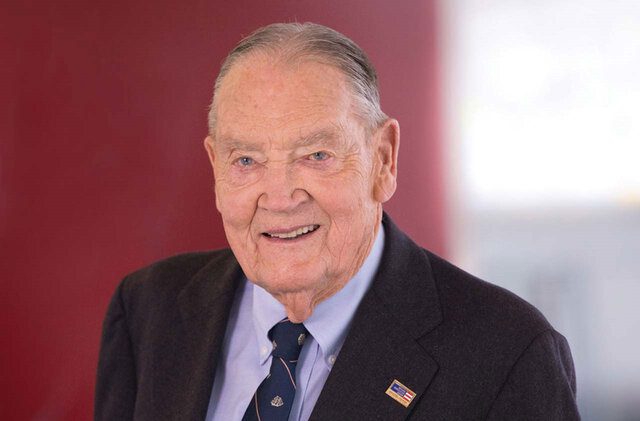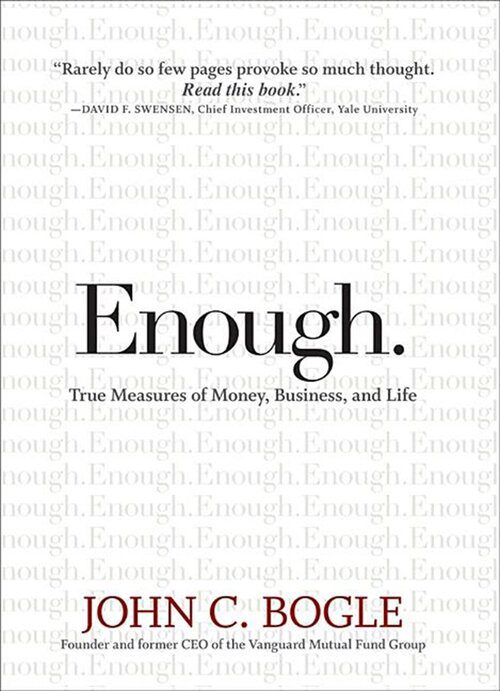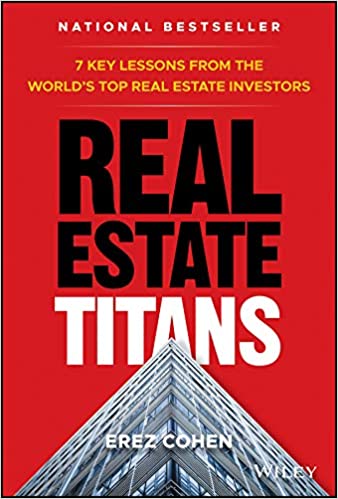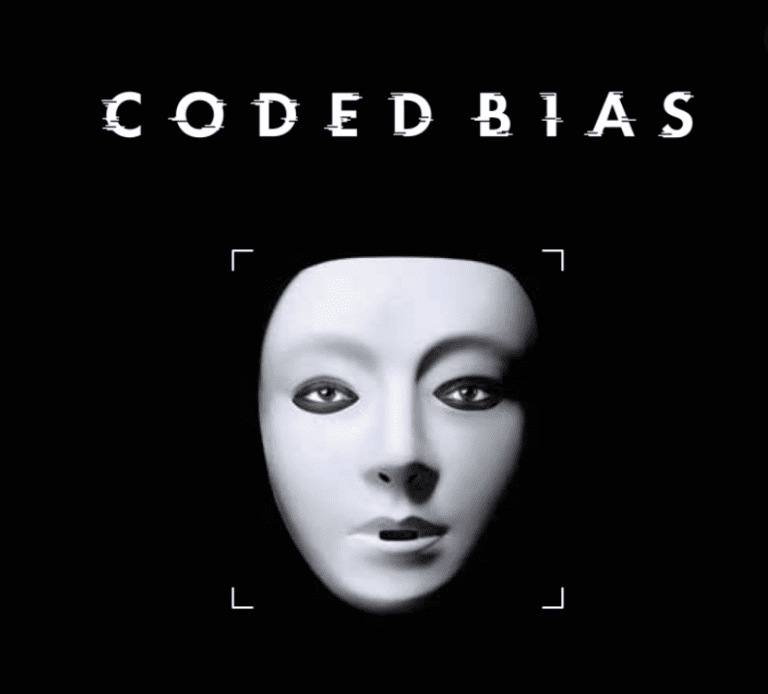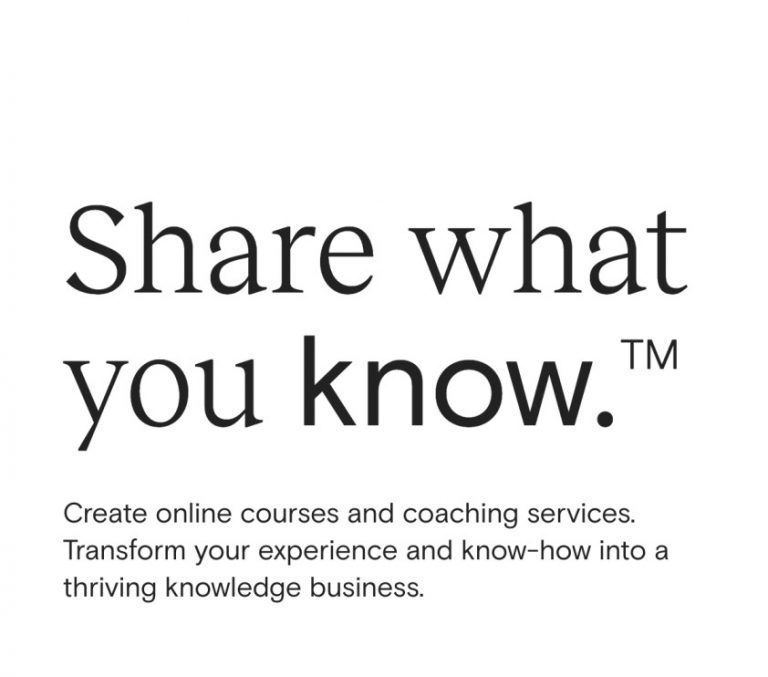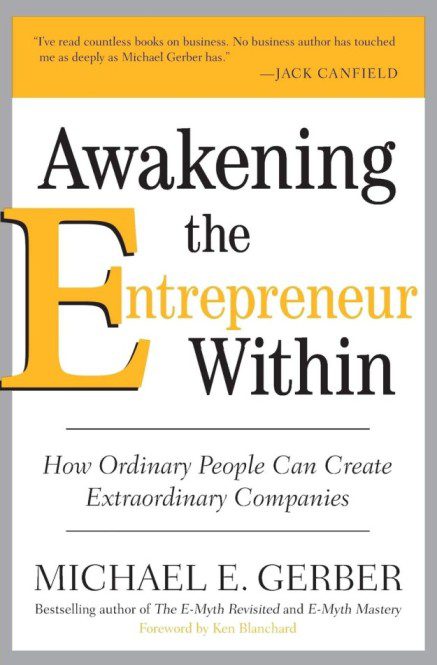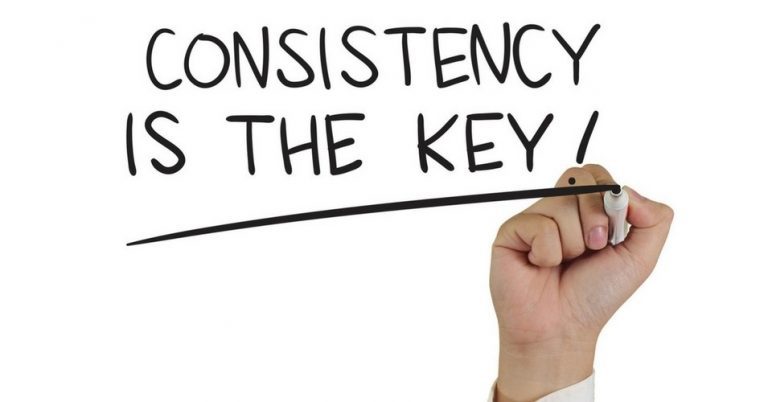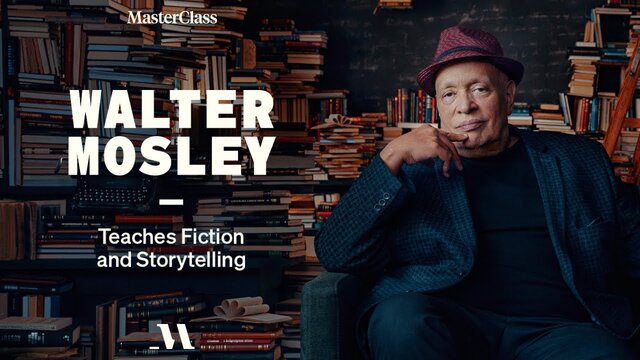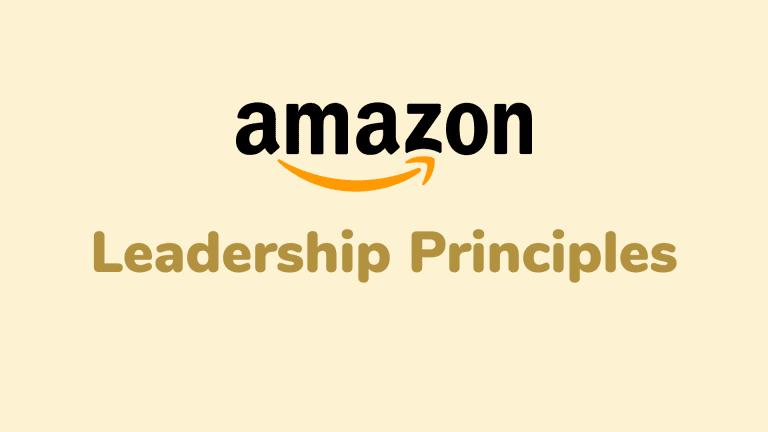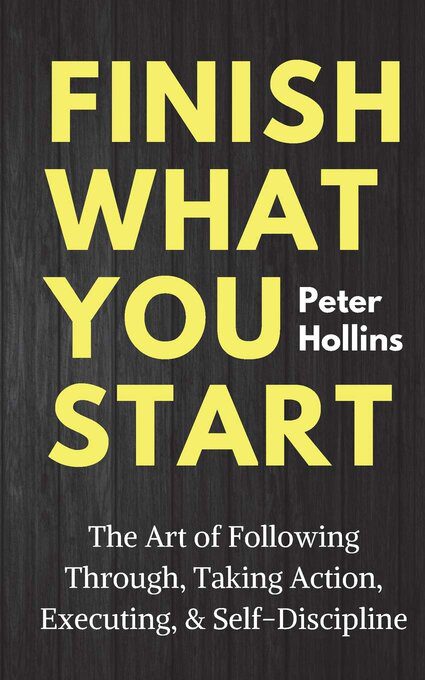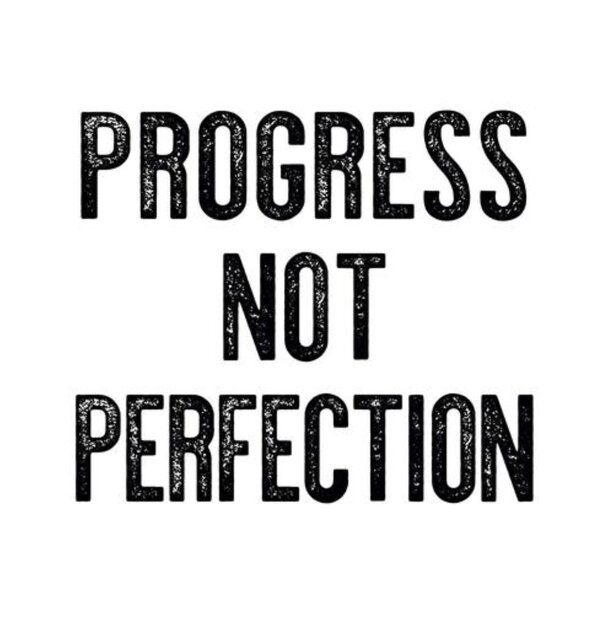John Clifton “Jack” Bogle (May 8, 1929 – January 16, 2019) was an American investor, business magnate, and philanthropist. He was the founder and chief executive of The Vanguard Group and is credited with creating the first index fund. Bogle was an advocate of long-term patience over short-term action, investment over-speculation, and the reduction of broker fees as much as possible.
“Life is a kind of campaign. People have no idea what strength comes to one’s soul and spirit through a good fight.” – Gutzon Borglum (sculptor of Mount Rushmore)
John C. Bogle was the founder and chief executive of The Vanguard Group and is credited with creating the first index fund. In 1999, Fortune named Bogle as “one of the four investment giants of the 20th Century.” alongside Warren Buffett, Peter Lynch, and George Soros. In his book, Enough: True Measures of Money, Business, and Life, Bogle shares great insights on what it truly means to have “enough” in a world increasingly focused on status and score-keeping. He also shared his principles on Money, Business, Life, and Leadership.
On Leadership
“What, then, are the characteristics of good leadership and of good management? On that subject, I have (surprise!) strong opinions, most of them formed in the crucible of my own six decades of business experience, including four decades as a leader—nine years as chief executive of Wellington Management, 22 years as chief of Vanguard, and (if you will) now nine years running Vanguard’s admittedly tiny Bogle Financial Markets Research Center, with its crew of three plus me. So here I speak from my own broad, firsthand, and often hard-won experience.”
10 rules for building a great organization
Rule 1: Make Caring the Soul of the Organization
When I first spoke to our Vanguard crew about caring in 1989, I used these words: “Caring is a mutual affair, involving:
“Success is not the key to happiness. Happiness is the key to success.” – Albert Schweitzer
Print | Kindle(eBook) | Audiobook
John C. Bogle, the late founder of the Vanguard Mutual Fund Group and creator of the first index mutual fund, in Enough: True Measures of Money, Business, and Life, examines what it truly means to have “enough” in a world increasingly focused on status and score-keeping. The book is divided into three sections: Money, Business, and Life.
The book begins with a great story that summarizes the theme of the book:
At a party given by a billionaire on Shelter Island, Kurt Vonnegut informs his pal, Joseph Heller, that their host, a hedge fund manager, had made more money in a single day than Heller had earned from his wildly popular novel Catch-22 over its whole history. Heller responds,“Yes, but I have something he will never have . . . enough.
“ The great game of life is not about money; it is about doing your best to join the battle to build anew ourselves, our communities, our nation, and our world.”
The most difficult thing is the decision to act, the rest is merely tenacity. The fears are paper tigers. You can do anything you decide to do. You can act to change and control your life; and the procedure, the process is its own reward. – Amelia Earhart
Some days are tougher than the other; sometimes you are upbeat other times you are down. No one lives a problem-free life; the key is to constantly show up, work hard, trust the process and relentlessly execute. Getting anything worthwhile done in life and business requires commitment, patience, consistency, and self-discipline. You do not need to be great to start, but you have to start to be great.
You are either preparing or you are repairing. To achieve long-lasting success requires consistent working on yourself, your business, and your goals. Anything worthwhile takes time, dedication, and commitment to the journey and not the destination. The journey is more important than the destination because when you get to the destination, the journey always continues. It is not what you achieve that matters, it is what you become on your path to success that really matters.
“It is good to have an end to journey towards; but it is the journey that matters, in the end. – Ursula K Le Guin
Life is in stages and seasons, there is a time to work on your project and there is a time to reap the reward of your hardwork, either through monetary rewards, awards or recognition. Success is cause and effect, what you sow is what you would reap. If you work hard, what is hard would eventually work but if you take short cut, you would eventually be cut short. We get rewarded in public for what we diligently practice and refine in private.
Print | Kindle(eBook) | Audiobook
In Real Estate Titans, Erez Cohen interviews the world’s leading real estate investors such as Richard Mack, Urs Ledermann, Ronald Terwilliger, Gina Diez Barroso, Elie Horn, Richard Ziman, Robert Faith, Chaim Katzman, Rohit Ravi, Joseph Sitt, Carlos Betancourt. Cohen draws on his experience as a research and teacher’s assistant at Wharton Business School with an investment expert—and his mentor—Dr. Peter Linneman. The book shares advice and insights garnered by the real estate titans; they answer questions like what they would do if they are starting over in real estate, making the best real estate deals, prioritizing their time and routines for becoming successful in life and business.
Life-long learning and becoming the hardest worker in the room seems to be one of the recurring habits exhibited by the real estate investors interviewed in the book. Here are my favorite takeaways from reading, Real Estate Titans by Erez Cohen:
Coded Bias is an American documentary film directed by Shalini Kantayya that premiered at the 2020 Sundance Film Festival. The documentary includes contributions from notable Artificail Intelligence and Facial Recognition Researchers: Joy Buolamwini, Timnit Gebru, Cathy O’Neil, Deborah Raji, Zeynep Tufekci, Safiya Noble, Meredith Broussard, Virginia Eubanks, among others.
Coded Bias highlights our collective social misconception about Artificial Intelligence and Facial recognition. The documentary advocates for an urgent need for legislative protection through regulation and moderation.
Teachable is an online courses and coaching creation software that allows entrepreneurs, creators, and businesses of all sizes to create personalized engaging online courses and coaching products complete with videos, lectures, and quizzes.
Join the more than 100,000 creators who use Teachable to share their knowledge. Easily create an online course or coaching business with our powerful yet simple all-in-one platform. Transform your experience and know-how into a thriving knowledge business.
Join more than 100,000 creators who’ve sold over $1 billion in courses and coaching.

Features of Teachable
Use our domain to connect to your own
Easily link your existing website to Teachable under a custom domain.
Customize your online school experience
Use our power editor to create engaging, multimedia lectures, videos, and coaching sessions.
Use tools you want to use
Think of an integration you want to use… Teachable supports it! The list of partners is exhaustive.

Teachable Metrics
Know your numbers
Track sales and student insights with our comprehensive dashboards.
Sell, sell, sell
Create gorgeous, money-making sales pages with our flexible page editor.
Make it a team effort
Bring on the authors, team members, and contributors and customize their permissions and roles; we can support them and pay them for you.
Teachable Quickstart Webinar
Learn how to create your own online school and set up your first course using Teachable (without any technical headaches).
Teach the way you want to learn.
Talk to your students live
Run one-on-one sessions with easy-to-build milestone, call hosting, and task features.

Schedule and host
Seamlessly take clients from booking to intake to scheduling and learning with our native integrations with Calendly.
Create success stories
Engage your students with quizzes and course completion certificates and ensure transformation with course compliance controls that require course completion to move on.
Print | Kindle(eBook) | Audiobook
Author and founder of E-Myth Worldwide, Michael E. Gerber, shares with the readers how to go from dreaming about owning a business to actually owning it by Awakening the Entrepreneur within them. Michael E. Gerber is the author of the NY Times bestseller “The E-Myth Revisited” and nine other worldwide best-selling E-Myth books concerning small business entrepreneurship, leadership, and management.
Here are my favorite takeaways from reading, Awakening the Entrepreneur Within by Michael E. Gerber:
‘Without commitment, you’ll never start, but more importantly, without consistency, you’ll never finish.” – Denzel Washington
During his 2017 NAACP Image Awards acceptance speech, Award-Winning Actor Denzel Washington quipped: ‘Without commitment, you’ll never start, but more importantly, without consistency, you’ll never finish.” Building a company or a brand that would stand the test of time requires consistently have a great work ethic and getting things done, day in and day out. We get rewarded in public for what we consistently refine and practice in private. Motivational Speaker and Author Anthony Robbins once said: “If you do the right thing at the wrong time you get pain – do the right thing at the right time and you will be rewarded – and to do that you need to take control of your own conditioning.”
The Key to get anything done is to Determine what is it you want, commit to achieving it and consistently execute your plans and goals. Whether it is losing weight, reading 100 books in a year, running a marathon, writing and passing a certification exam, it requires consistent preparation and commitment to the process of achieving your goals.
In its March/April 2021 edition, Fast Company curated a list of the 50 most innovative companies in the world. The World’s 50 Most Innovative Companies address a society remade by COVID-19. Many of them pioneered business models that are now accelerating: Peloton and Zwift, for example, are riding at-home fitness in new directions.
You can not have a novel without a story but the story is not the novel.
Walter Ellis Mosley (born January 12, 1952) is an American novelist, most widely recognized for his crime fiction. He has written a series of best-selling historical mysteries featuring the hard-boiled detective Easy Rawlins, a black private investigator living in the Watts neighborhood of Los Angeles, California; they are perhaps his most popular works. Mosley started writing at 34 and has written every day since, penning more than sixty books and often publishing two books a year.
This story, like all great stories, begins with a single sentence:
“On hot sticky days in southern Louisiana, the fire ants swarm.”
In the mid-1980s, Walter Mosley, a computer programmer, types out these words in a quiet moment. He’s 34 years old. He’s never thought about being a writer, but something about the sentence stays with him. He thinks it sounds like something that could be in a book—and it’s the first time he thinks maybe I could be a writer. He’s been reading Alice Walker’s The Color Purple and is excited by what that book opens up in his mind about the kinds of stories one can tell.
“You can write down your corporate culture, but when you do so, you’re discovering it, uncovering it—not creating it.” – Jeff Bezos
One of the hallmarks of a great organization is that they have a strong sense of mission and well-defined culture. The 14 Amazon’s Leadership Principles are the guiding principles for executing Amazon’s core vision of becoming the world’s most customer-centric organization. If you want to know what makes Amazon thick or are interviewing for a job at Amazon, the leadership principles is the Amazonian way of getting things done and executing on the overarching vision of the organization.
In their book, Working Backwards: Insights, Stories, and Secrets from Inside Amazon, former Amazonians Colin Bryar and Bill Carr writes glowing about the 14 Amazon’s Leadership Principles.
As a freelancer or blogger, getting paid is one thing we all try to figure out as soon as possible. Payoneer is a global payment platform that can help with that, and I have been using the platform for more than 6 years, and it’s been a great payment solution. Payoneer’s platform streamlines global commerce for millions of small businesses, marketplaces, and enterprises from 200 countries and territories.
Payoneer Account-holders can send and receive funds using an e-wallet, a virtual bank account number in a local currency, or a re-loadable prepaid MasterCard debit card. Money received can then be withdrawn to a bank account or used online / at points of sale with the Payoneer debit card.
Withdraw your funds at ATMs worldwide or make purchases online and in-store.
Print | Kindle(eBook) | Audiobook
We all fall into the temptation of procrastinating what we start but fail to finish. We misplace our priorities, we fail to delay gratification, we do not exercise our free will and self-discipline. Hence we continuously fail to execute on our ideas and fail to follow through. Author Peter Hollins shares strategies and tactics to deal with procrastination by following through, taking action, executing, and using self-discipline to honor our commitments and resolutions.
Too often, we’ll say we’ll do something, and we might even start it one lucky weekend. But at the first sign of hardship, fatigue, boredom, or busyness, we abandon it all too easily, and it sits in our garage (mental, figurative, or literal) for the rest of eternity.
Finishing what you start and following through is breaking through that common loop and taking hold of your life.
Here are my favourite take-aways from reading, Finish What You Start by Peter Hollins:
You do not need to be great to start but you have to start to be great.
It might not seem so but everyone is trying to figure it out. From your favorite sports athlete, musician, politician, entrepreneur, you name it. Barrack Obama, Beyonce, Jordan, Oprah Winfrey, Bill Gates, and anyone you have come across even Donald Trump. We live in a world where showing a little vulnerability is seen as a sign of weakness, especially for men, it is recommended you numb your pain, deal with it, hence we have a society filled with people hiding their inadequacies, pretending to be perfect, we are all performing for the world through social media by sharing our well-curated perfect life and in the process making others depressed, envious, jealous and in turn everyone is striving for perfection.
A good plan violently executed now is better than a perfect plan executed next week. – George S. Patton
One of the greatest truism of life is that: “You do not need to be great to start but you have to start to be great”. Anything worthwhile takes time, commitment and consistency to achieve your set goals and aspirations. As Earl Nightingale once said “Success is the progressive realization of a worthy goal or ideal.” My favourite Nursery rhyme is ” Good better best never let it rest until good is better and better is best.”
